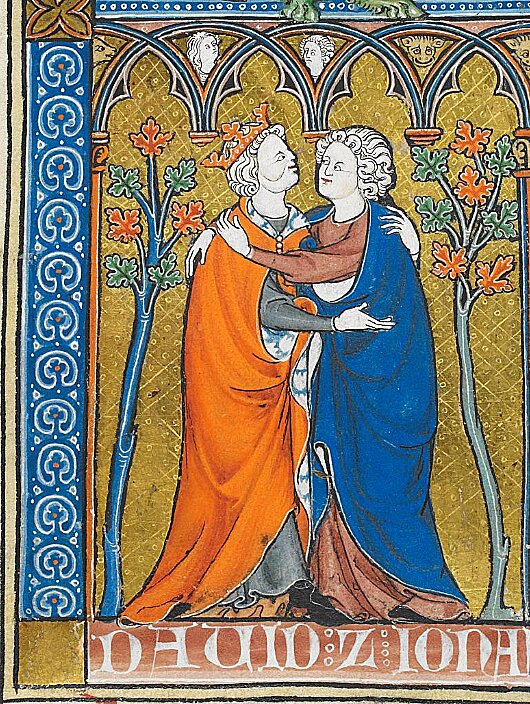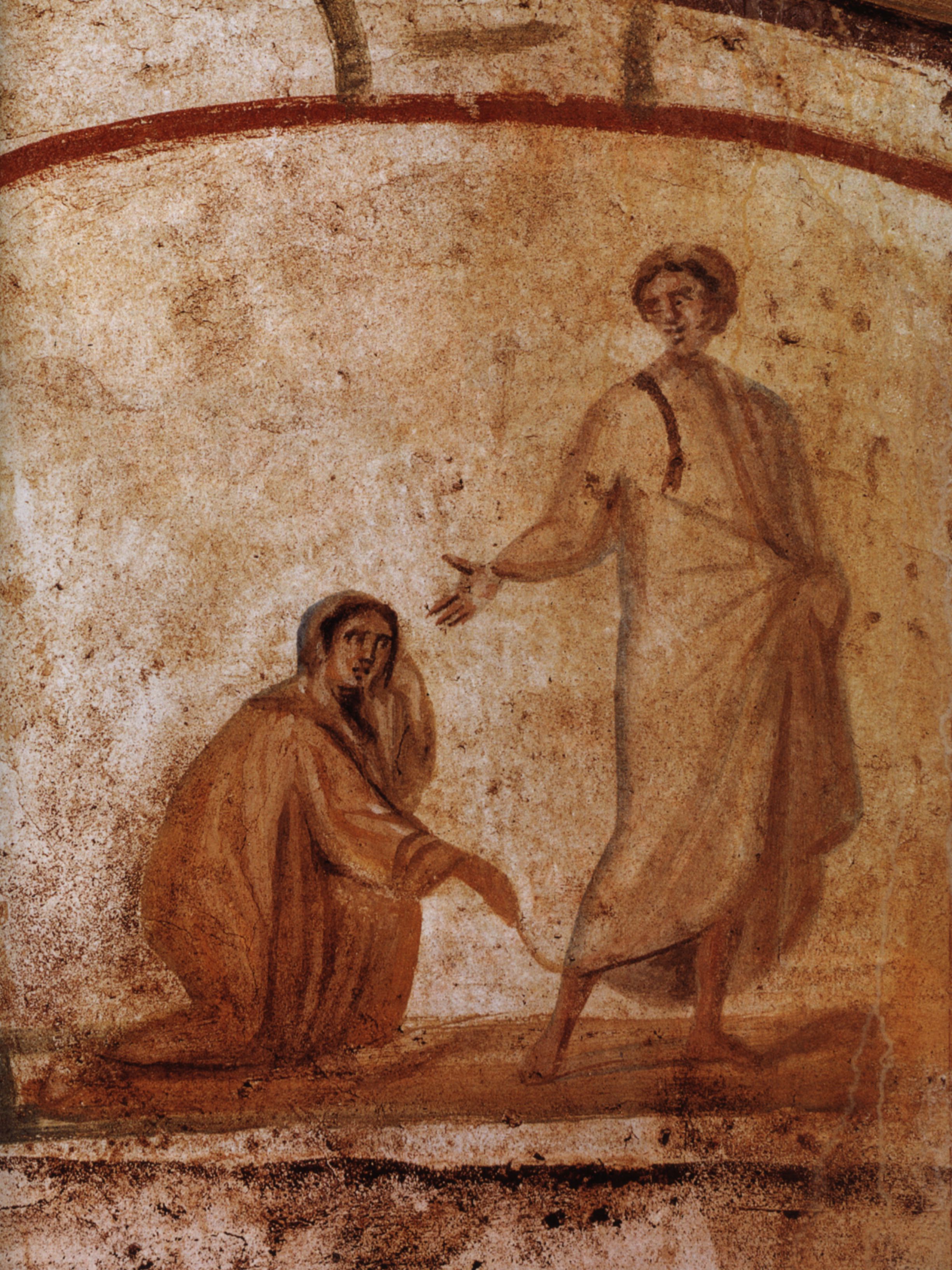A Reflection for 5th Sunday after
Pentecost (Proper 8)
All Saints’,
Southern Shores, NC
June 28, 2015
Thomas E.
Wilson, Rector
How
Have the Mighty Fallen and the Weapons of War Perished
How do we deal with people with whom we disagree; do
we engage them in argument or avoid them? How do we deal with people who are
different from us - pretend the differences are not there or try to change
them? How do we deal with people who are a threat to us; do we run away or
threaten them back? How do we deal with people who hate us; do we avoid them or
do we return the hate? The lessons for today have as one of the themes that we have
a choice to either fear or to love as a response to all of those situations.
| Rembrandt's Saul and David |
The Hebrew Testament lesson for today picks up the
David saga further down the road from last week’s Goliath conflict. Saul was so
grateful for the defeat of Goliath that he brought David into his palace. Saul
was subject to fits of depression, and David would soothe Saul’s soul by
singing songs to him. Saul gave his daughter Michal to David as his first wife
to keep him close because he loved him. He made David an officer in command of
others and David, leading daring raids, won many battles, and his fame grew
even greater than that of Saul. This grated on Saul and made him anxious. David
was also very close to Saul’s son,
Jonathan, and they loved each other dearly,
so dearly that Saul grew to be jealous of that relationship. Finally Saul burst
out in violence against David and David fled for his life as Saul declared
David an outlaw. Saul even dispatched
David’s wife, Michal (and Saul’s own daughter) to be the wife of a flunky that
Saul thought was more trustworthy. Why does Saul do all these things? Is he
crazy? He might be, but violence is a choice that people often make when they
want to restore order when things seem to be slipping out of their grasp. We
humans have a tendency to want the status-quo and, uneasy with change, the more
we fear, the more violent we get.
 |
| David and Jonathan French 13th Century Manuscript |
David took to the hills and kept out of Saul’s
clutches, being careful not to openly fight against Saul. David made a pretty
good living as a bandit and running a sort of protection racket to keep bad
things from happening to different landowners. At times, government can be
confused with protection, so that in some parts of the Kingdom, especially
around Hebron in Judah, he became the de facto leader where Saul’s rule was
weak. One time when Saul was trying to hunt David and his men down, David had
the opportunity to murder Saul in his sleep, but David only cut off a piece of
Saul’s robe and then sent it back to him as a reminder that he still loved
Saul. Later Saul and Jonathan are killed in battle against the Philistines at
about the same time that David was fighting the Amalekites. Yes, David kept
himself safe from Saul, but he continued to love.
David writes a poem, in honor of Saul and Jonathan,
which is the lesson for today and in which he declares his love once again. The
poem is called the Song of the Bow, which apparently was also included in a
now-lost volume of National Songs called the Book of the Upright. The Bow is a
reference to Jonathan who was proficient in archery and shows David’s grief at
losing his special friend Jonathan, but at the same time David shows love to
his enemy, Saul. The lament is for all of those who are killed as the result of
fear which grows into violence. The refrain “How have the mighty fallen and the
weapons of war perished” underlines the futility of turning to violence as a
way of dealing with fear and people different from ourselves.
Paul in the Epistle selection for today writes to
the church in Corinth on how to deal with the disapproval of the Gentile
mission by the very conservative group of Jewish Christian elders in Jerusalem
who thought that Gentile Christians were second class Christians. There was a
famine going on in Jerusalem, and Paul suggests that the Corinthians need to
show love in the form of a collection to help the group in Jerusalem who look
down on them, to repay distain with love.
In the Gospel lesson for today, Jesus is approached
by the head of the synagogue to help heal his daughter. On his way they are
caught in a crowd, and a woman uses this opportunity to bump into Jesus as a
way of getting healing from her hemorrhaging of blood. She could not ask him
directly because the purity laws forbade a man from touching a woman who is
bleeding because that would make him ritually unclean. This woman is a threat
to Jesus and his ministry and so how does he respond? He loves her, forgives
her, and grants her peace.
 |
| Jesus and Hemorrhaging Woman from Catacombs of Rome mid 2nd Century |
Word comes that the daughter of the head of the
synagogue is dead, and again the ritual purity laws come into effect for if
Jesus were to continue to the house and touch a dead person, he would be
declared ritually unclean. Jesus gets around it by saying that she is only
sleeping and tells the father “Do not fear, only believe.” He continues to the
house as an act of love, replacing deadly fear with a new life, for as the
author of 1st John reminds in the Message Translation:
God is love. When we take up
permanent residence in a life of love, we live in God and God lives in us. This
way, love has the run of the house, becomes at home and mature in us, so that
we’re free of worry on Judgment Day—our standing in the world is identical with
Christ’s. There is no room in love for fear. Well-formed love banishes fear.
Since fear is crippling, a fearful life—fear of death, fear of judgment—is one
not yet fully formed in love. (4:17-18)
When I look at the lessons for today, I ask myself
of what am I afraid? Why does it keep me from loving? Penny Nash, the associate
Rector of St. Stephen’s in Richmond wrote this month’s meditations for Forward Day by Day, and last Sunday, as
I was looking at these lessons, I read her mediation which began: “It has been
said, and I double checked to make sure it is true, that “Fear not!” appears in
the Bible more than 365 times. That’s worth remembering every day, all year.”
All I have to say is “A-men to that”, for each day I might run into people who
are different, or disagree, or are a threat, or who hate me, and I don’t need
to cripple my life with fear.
How
Have the Mighty Fallen and the Weapons of War Perished (poem)
Her
eyes coldly cut over to me, saying
that
I am not worth a breath expending
share
of dislike, her distained contempt.
Wondering
if a deep hatred is her intent
to
try to hurt me or to just herself cripple
with
justly hurt pride?
The waves ripple
between
us over years of things unsaid
becoming
the substance of daily bread
nourishing
estrangement.
I hear her sigh
the
wish that our love didn’t have to die
of
neglect. Fear of failing numbs the hand
reaching
to touch, so to my side unmanned
it
returns to in air dangle.
Spirit giving peace,
give
me strength to love so fear might cease,
I
pray, asking that be our mighty pride fallen
and as weapons of our war- perish forgotten.
No comments:
Post a Comment